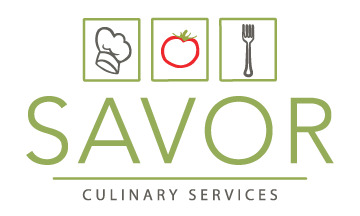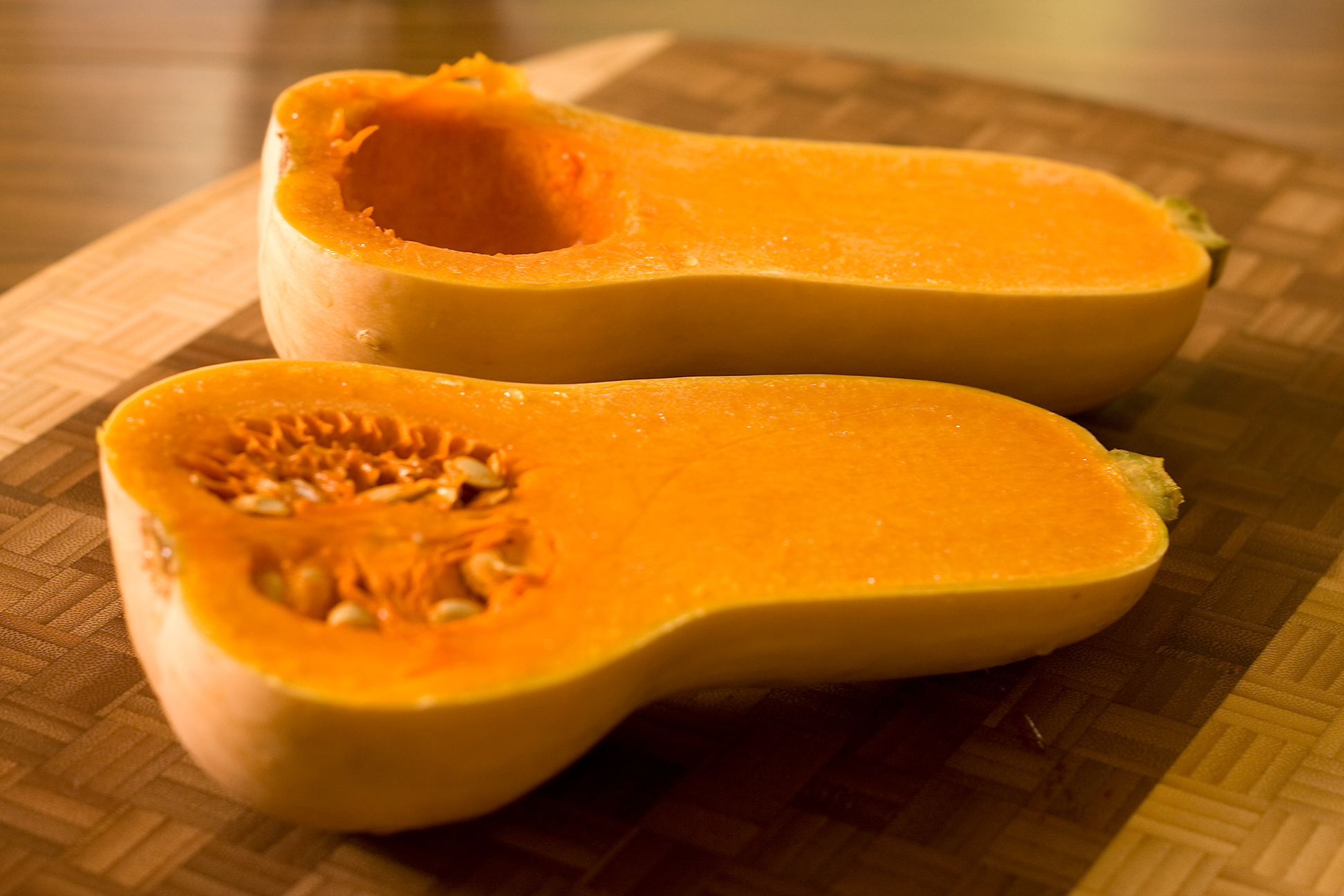Butternut squash are abundant in the supermarkets and farmers’ markets right now. If you haven’t tried it, you’re missing out. Butternut squash is a winter squash (actually, it’s a fruit) with a sweet, nutty, taste, similar to pumpkin. It’s relatively simple to prepare and can be roasted, toasted, puréed for soups, or mashed and used in casseroles, breads, and muffins.
How to pick a good one
It’s better to buy a whole butternut squash instead of one that has already been sectioned. It should be relatively heavy for its size and the stem should be firmly attached to the squash. Note: A narrower squash will be easier to cut up than a fatter one. Be sure to avoid squash with wrinkled surface, spots, cuts, and bruises.
Storing
The whole squash will keep for a few weeks at room temperature in a cool, non-humid, well-ventilated spot. Once you cut the squash; however, it should be placed in the refrigerator where it will keep for a few days.
How to prepare
Cut off the stem and about 3/4 inch off the bottom to form a flat surface. Cut the squash in half lengthwise and scoop out the seeds and stringy stuff. At this point you can bake the squash in its skin or you can peel the skin with a heavy duty vegetable peeler and cube the squash for cooking.
Health benefits
- It has very low calories. There’s just about 45 calories in 100 g.
- It contains no saturated fats or cholesterol; however, it is a great source of dietary fiber and phyto-nutrients.
- It has more vitamin A than pumpkin. Vitamin A is a powerful natural anti-oxidant that helps maintain the integrity of skin and mucus membranes. It is also an essential vitamin for optimum eyesight. Research studies suggest that natural foods rich in vitamin A help the body protected against lung and oral cavity cancers.
- It is rich in B-complex group of vitamins like folates, riboflavin, niacin, vitamin B-6 (pyridoxine), thiamin, and pantothenic acid.
- It has similar mineral profile as that in pumpkin, containing adequate levels of minerals like iron, zinc, copper, calcium, potassium, and phosphorus.
- Butternut squash seeds are a good source of dietary fiber and mono-unsaturated fatty acids that benefit for heart health. In addition, they are rich in protein, minerals, and numerous health-benefiting vitamins. The seeds are an excellent source of health promoting amino acid, tryptophan.
Source: http://www.nutrition-and-you.com/butternut-squash.html
Roasted butternut squash is a fall perfect side dish. If you have leftovers, throw the squash into a blender with a little vegetable stock and blend to make soup.
Try this simple recipe for Cinnamon Roasted Butternut Squash.

